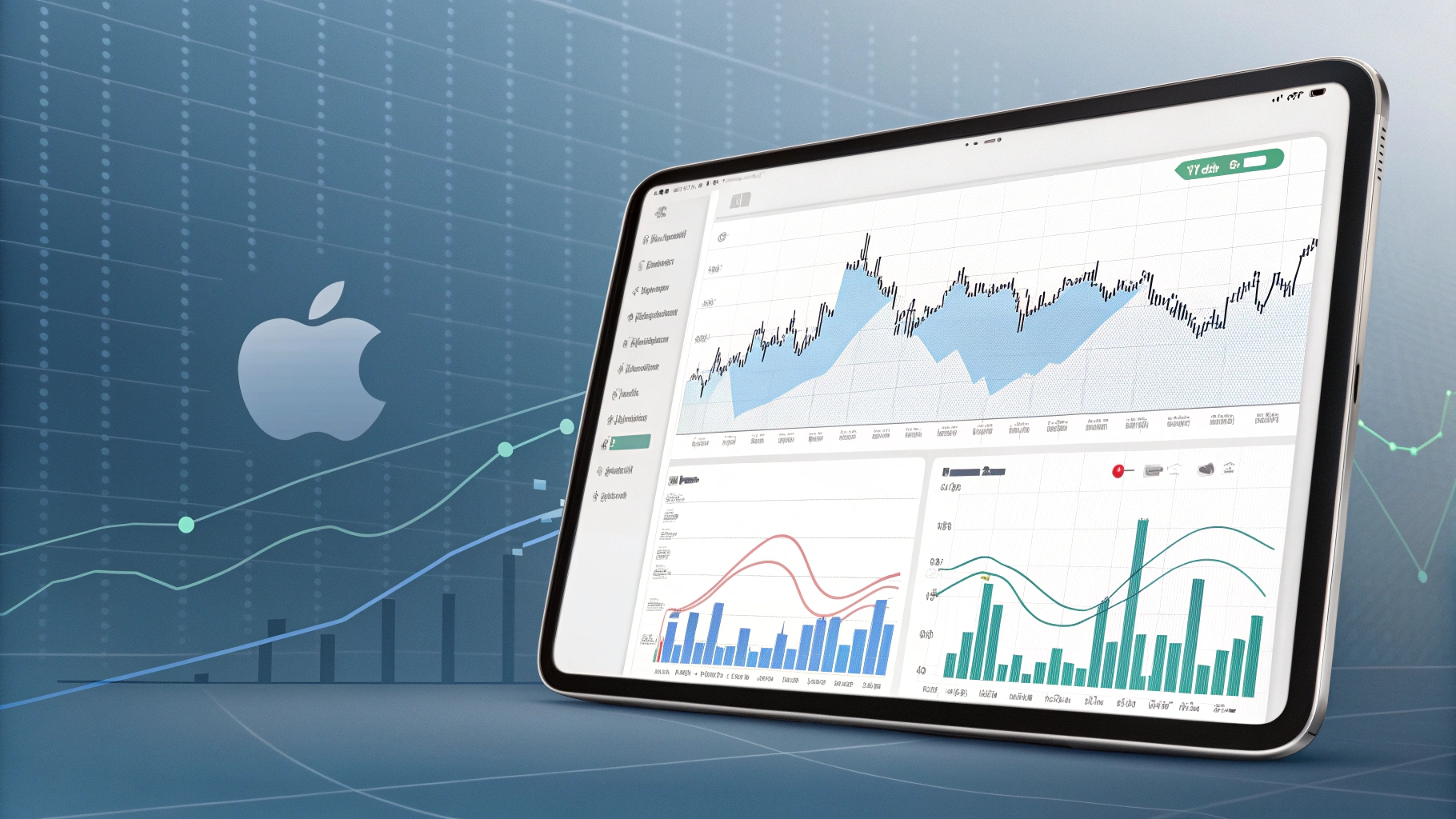Apple Inc. (NASDAQ: AAPL) is one of the most valuable and influential companies in the world. Investors closely monitor its stock performance as it plays a crucial role in the broader stock market, tech sector, and economy.
FintechZoom, a financial news and analysis platform, provides real-time updates, stock forecasts, and insights into Apple stock, helping investors make informed decisions.
This article explores Apple stock trends, factors influencing its performance, and what investors can expect in the future.
Overview of Apple Stock Performance
Apple stock has been a favorite among retail and institutional investors due to its consistent growth, strong financial performance, and innovative product lineup. Over the years, Apple’s stock has undergone multiple stock splits, maintaining affordability while delivering substantial returns.
Key Metrics:
- Stock Ticker: AAPL
- Exchange: NASDAQ
- Market Capitalization: Over $2.5 trillion (as of recent data)
- 52-Week High/Low: Indicates volatility and growth potential
- Dividend Yield: Attracts income investors alongside growth investors
Factors Influencing Apple Stock
Several key factors impact Apple stock performance, including:
1. Product Launches and Innovation
Apple continues to innovate with upcoming product launches, including the highly anticipated iPhone 16 and AI-powered MacBooks. The company is investing in AI and AR technologies to enhance user experience and drive future growth. Its strong R&D focus keeps it ahead in the competitive tech market.
2. Earnings Reports and Financial Performance
Apple’s latest earnings report showed strong revenue growth, driven by services and wearables despite slowing iPhone sales. The company maintains high profitability with solid margins and consistent stock buybacks. Investors closely watch its guidance amid economic uncertainties and global demand shifts.
3. Macroeconomic Conditions
Apple navigates macroeconomic challenges like inflation, supply chain disruptions, and fluctuating consumer demand. Interest rate changes and geopolitical tensions impact its global sales and production costs. Despite these hurdles, Apple’s strong brand and ecosystem help maintain stability.
4. Competition and Market Share
Apple faces intense competition from Samsung, Google, and emerging Chinese brands in smartphones and tech devices. Its ecosystem advantage and premium branding help sustain market share despite pricing pressures. Innovation in AI and services is key to staying ahead in the evolving tech landscape.
5. Supply Chain and Production Issues
Apple’s supply chain faces challenges from geopolitical tensions, component shortages, and production disruptions in China and India. The company is diversifying manufacturing to reduce risks, with increased production in Vietnam and India. Despite setbacks, Apple’s strong supplier relationships help mitigate delays.
6. Regulatory Challenges and Lawsuits
Apple faces increasing regulatory scrutiny over App Store policies, antitrust concerns, and privacy practices worldwide. Lawsuits and fines from the U.S., EU, and other regions challenge its business model and revenue streams. The company adapts by adjusting policies and lobbying for favorable regulations.
7. Stock Buybacks and Dividends
Apple continues its aggressive stock buyback program, returning billions to shareholders and boosting stock value. The company also maintains steady dividend payouts, appealing to long-term investors. Strong cash flow enables consistent capital returns despite market fluctuations.
FintechZoom’s Apple Stock Predictions and Analysis
FintechZoom provides expert analysis, technical indicators, and AI-driven forecasts for Apple stock. Here’s what investors can expect based on FintechZoom insights:
Short-Term Outlook
- Analysts predict Apple stock will remain volatile, responding to economic conditions and product developments.
- Technical indicators suggest strong support around key moving averages.
Long-Term Growth Potential
- Apple’s expansion into AI, augmented reality (AR), and electric vehicles (EVs) could drive future growth.
- Services revenue (Apple Music, iCloud, App Store) is expected to increase, ensuring recurring income.
- FintechZoom projects Apple stock to remain a strong investment over the next five years.
Investment Strategies for Apple Stock
1. Long-Term Holding
Apple remains a strong long-term investment due to its innovation, strong brand, and consistent revenue growth. Its stock buybacks, dividends, and expansion into AI and services support sustained investor confidence.
2. Short-Term Trading
Apple’s stock sees frequent price swings, making it attractive for short-term traders using technical analysis. Key catalysts include earnings reports, product launches, and macroeconomic events.
3. Dividend Investing
Apple offers a reliable but modest dividend, appealing to long-term investors seeking stability. Its strong cash flow and consistent stock buybacks enhance total shareholder returns.
4. Options Trading
Apple’s stock volatility makes it popular for options trading, with strategies like covered calls and puts. Traders capitalize on earnings reports, product launches, and market trends for short-term gains.
Frequently Asked Questions (FAQs)
1. Is Apple stock a good investment for beginners?
Yes, Apple is considered a safe investment due to its strong financials and market leadership.
2. What is the best time to buy Apple stock?
Buying during market corrections or after earnings dips can offer better entry points.
3. Does Apple pay dividends?
Yes, Apple pays quarterly dividends and has a history of increasing payouts.
4. How does Apple’s stock compare to other FAANG stocks?
Apple is one of the most stable FAANG stocks, offering both growth and dividends.
5. What risks are associated with investing in Apple stock?
Regulatory issues, market volatility, and competition pose potential risks.
6. Will Apple’s stock continue to grow in the future?
Experts predict long-term growth driven by innovation, services revenue, and market expansion.
7. What is the impact of stock splits on Apple shares?
Stock splits make shares more affordable without changing company value.
8. How does Apple’s cash reserves benefit investors?
Apple’s massive cash reserves allow it to invest in growth, acquisitions, and share buybacks.
9. Should I invest in Apple or an Apple ETF?
Investing in an ETF provides diversification, while buying Apple stock gives direct exposure.
10. Where can I track Apple stock in real time?
Platforms like FintechZoom, Yahoo Finance, and Bloomberg provide real-time stock updates.
Conclusion
Apple remains a dominant player in the tech industry, driven by innovation, strong financials, and a loyal customer base. Despite challenges like regulatory scrutiny, supply chain disruptions, and fierce competition, the company continues to grow.
Its stock appeals to both long-term investors and short-term traders, offering stability, dividends, and trading opportunities. Ongoing investments in AI, AR, and services further strengthen its future prospects. Stock buybacks and steady dividends enhance shareholder value, making Apple a resilient investment choice.
With strategic adaptability, Apple is well-positioned to maintain its leadership in the evolving tech landscape.


